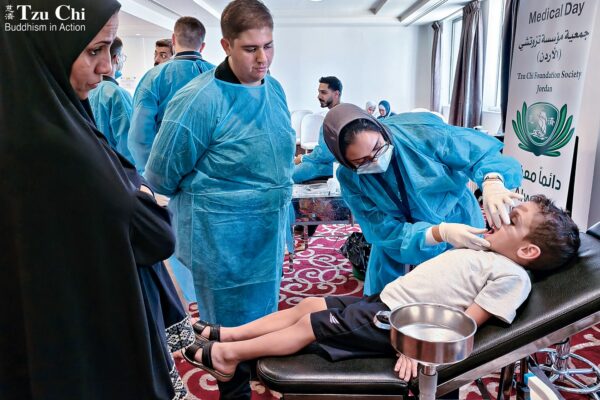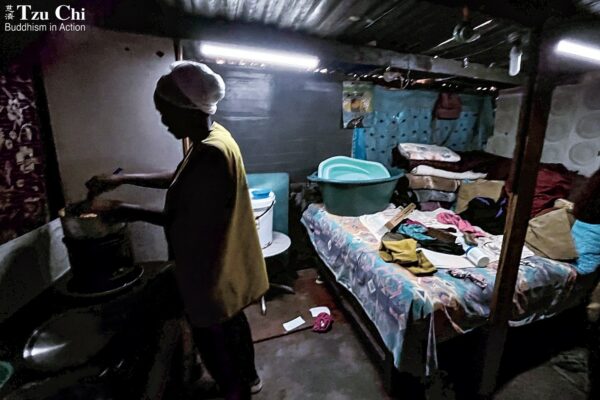Narrated by Huang Ming-yue
Compiled by Wei Yu-xian
Edited and translated by Rose Ting
Photo by Hsiao Yiu-hwa

When is the best time to say “I love you” to your family? Don’t wait until your wedding anniversary or until you’ve fallen ill and time is no longer on you side. Now is the best time.
I serve as a volunteer at Taichung Tzu Chi Hospital, central Taiwan. Medical workers in the hospital’s emergency room (ER) once shared with me a memorable emergency situation.
One day, a man about 40 years old ran into the ER, his hand holding his left chest. “I can’t breathe,” he said.
The ER personnel on duty immediately sensed he might be having heart trouble. An exam revealed that he was suffering from a myocardial infarction, commonly known as a heart attack. Wasting no time, everyone jumped into action to treat him. The patient, still conscious, asked a nurse, “Can I do one thing?” “Just a second,” the nurse answered while hooking him up to an IV drip.
When everything was set up and they were pushing him to the cardiac catheterization room, the patient asked again, “Can I make a phone call?” He told the nurse he wanted to call his wife. The nurse dialed the phone for him, but the call didn’t get through. She asked if she could take the message for him. The patient said, “I want to say, ‘I love you,’ to my wife.”
Hearing what the man wanted to say, the nurse decided to record a video with a cell phone of what he wanted to say to his wife. The nurse recorded the video as he was pushed to the cardiac catheterization room, then sent the recording to his wife.
Fortunately, the patient’s life was saved as a result of the cardiac catheterization. He was discharged from the hospital soon after. The biggest joy of a medical worker comes from being able to help save lives. Everyone was happy for the man.
I couldn’t help but wonder when I heard of this little episode: “What was the man thinking when he made that request to call his wife?” Perhaps he was thinking he might never get another chance to see his loved one, and felt the need to tell her he loved her while he still could.
Even before this incident, I had often said to my fellow Tzu Chi volunteers that while we often work to give love and care to others, we mustn’t neglect to tell our own family members, “I love you.” I encouraged them to bravely say those three words to their loved ones.
A few days ago, I ran into volunteer Liu Jie-zhu (劉揭珠). She’s about 80. She shared with me that one day when she returned home, she said to her son, “I love you, son!” Her son was stunned at first, but quickly recovered and, obviously touched, said, “Mom, I love you, too.” Then he embraced her.
His two sons saw him embracing their grandmother, and they piped up, “I want a hug, too.” The four of them ended up hugging together.
Jie-zhu told me that she has seen and learned a lot by serving as a volunteer. Master Cheng Yen’s teachings have taught her a lot too. She applies her teachings in her daily life and works on improving herself. She said now she often says to her son: “I’m truly grateful to you. You make me so happy. I love you so much.” Her son always responds very warmly, and often asks her not to get too tired volunteering, and to be sure to allow him to spend time with her more often.
When is the best time to say “I love you” to your loved ones? Don’t wait until it is too late; now is the best time. Don’t let another moment slip by unexpressed—tell your family and those you cherish in your life, “I love you!”



